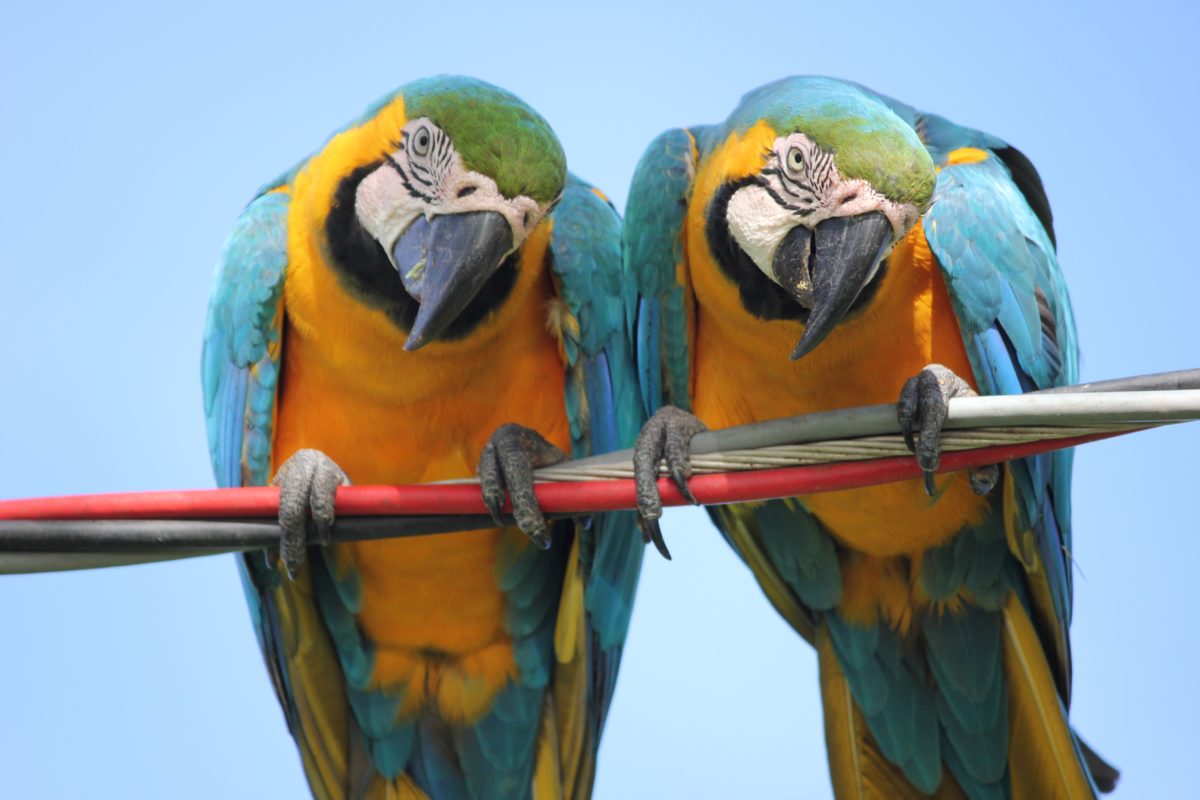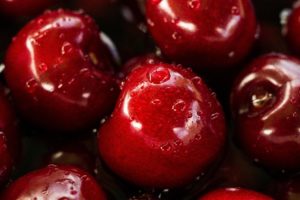What Do Parrots Eat And Drink?

Table of Contents
What Do Parrots Eat And Drink?
What do parrots eat and drink? This is a question you should ask yourself well before buying or adopting a parrot. If you are already a parrot or exotic bird owner, you should always be sure to check out all the options available to you for feeding your parrot. Even if you have not owned a bird for very long, you already know that there are many websites that that sell parrot food. Whichever food you choose, you should always ensure that it will meet  the unique nourishment needs of your pet parrot. Therefore, you should always do thorough research on your parrot species before deciding which food to buy.
the unique nourishment needs of your pet parrot. Therefore, you should always do thorough research on your parrot species before deciding which food to buy.
Sites like Amazon have a wide range of parrot food that may be perfect for your pet bird. However, no matter how high quality, you should always ensure that the food is appropriate for your parrot. Always remember that nutritional needs will be different from one species to another. A good rule of thumb is that, if in doubt, get the opinion of a qualifies veterinarian.
What Do Parrots Eat And Drink? Some Dos And Don’ts
When feeding your parrot, you should always provide a diet that comes closest to what it would eat in the wild. While commercial parrot food is great, you should also feed your parrot the fruits, nuts and certain grains that it would find in its natural habitat.
Therefore, DO feed your parrot the following:
- Grapes in moderation and if possible grown without pesticides.
- Cherries, without the seeds.
- Oranges in moderation, because they are acidic.
- Bananas. You can even allow bigger species of parrots peel the bananas themselves!
- Strawberries
- Pineapple
- Tomatoes in moderation because they are acidic
- Watermelon
- Carrots
- Blueberries
- Almonds
- Cucumbers
- Cantaloupe
- Kiwi
- Radishes
- Coconut
- Broccoli
DON’T feed your parrot the following foods:
- Peanuts, because they contain aflatoxin.
- Milk, because it contains lactose.
- Peanut butter, because of the large amounts of salt and sugar it contains. Also because of the aflatoxin in peanuts.
- Chicken, because it contains hormones and antibiotics.
- Cheese, for the same reason you should avoid providing milk.
- Chocolate, because it is toxic for birds. Enough chocolate can kill your parrot.
- Meat. While insects are part of your parrot’s diet in the wild, parrots do not naturally eat meat.
- Fish, because it often contains mercury.
- Mushrooms, because fungus in general should be avoided due to toxin content.
Other Sources Of Information On Parrot Food
Another good way to understand what parrots eat and drink is to talk to other parrot owners. Not only will they be able to offer you specific food advice, they will also be able to refer you to websites where you can buy parrot food. In the wild, parrots eat fruit, nuts and insects. However, since your pet parrots are far from their natural habitat, you need to be careful to offer them the right variety of vitamins, fiber and minerals. Finally, you should ensure that whichever brand of commercial parrot food you select is reputable among other bird owners.
Some top-selling parrot foods include Caribbean Bounty Food and Fiesta Parrot Food. These are well-known and popular brands. Yet, even if a specific food is right for the vast majority of birds, you need to make sure it will be right for yours. This is a good reason to seek the advice of a veterinarian. This will give you the peace of mind you need to feed your parrot a specific type of food.
Last but not least, you should consider the cost of parrot food. You will always be able to find seasonal discounts on parrot food. Just make sure that the food you purchase is not past its expiration date!
More Information On Raising Parrots
If you are a new parrot owner, or getting ready to buy or adopt a parrot, be sure to ready read up on parrot aviaries before you do. And whether you buy or build an aviary, or decide to to get a parrot cage, always remember to give you pet parrot as much space as possible to move around, spread its wings, and, if possible, fly. Finally, read up on how to keep these intelligent birds entertained and healthy for years!
More On Amazon
 Price: $ 13.28
($ 1.66 / lb)
Buy now at Amazon*
Price incl. VAT., Excl. Shipping
Price: $ 13.28
($ 1.66 / lb)
Buy now at Amazon*
Price incl. VAT., Excl. Shipping
 Price: $ 11.80
($ 0.25 / Fl Oz)
Buy now at Amazon*
Price incl. VAT., Excl. Shipping
Price: $ 11.80
($ 0.25 / Fl Oz)
Buy now at Amazon*
Price incl. VAT., Excl. Shipping
 Price: $ 14.99
($ 0.19 / Fl Oz)
Buy now at Amazon*
Price incl. VAT., Excl. Shipping
Price: $ 14.99
($ 0.19 / Fl Oz)
Buy now at Amazon*
Price incl. VAT., Excl. Shipping
 Price: $ 47.93
($ 1.92 / lb)
Buy now at Amazon*
Price incl. VAT., Excl. Shipping
Price: $ 47.93
($ 1.92 / lb)
Buy now at Amazon*
Price incl. VAT., Excl. Shipping
 Price: $ 25.97
($ 3.25 / lb)
Buy now at Amazon*
Price incl. VAT., Excl. Shipping
Price: $ 25.97
($ 3.25 / lb)
Buy now at Amazon*
Price incl. VAT., Excl. Shipping
 Price: $ 25.72
($ 0.27 / Ounce)
Buy now at Amazon*
Price incl. VAT., Excl. Shipping
Price: $ 25.72
($ 0.27 / Ounce)
Buy now at Amazon*
Price incl. VAT., Excl. Shipping
 Price: $ 24.31
($ 0.25 / Ounce)
Buy now at Amazon*
Price incl. VAT., Excl. Shipping
Price: $ 24.31
($ 0.25 / Ounce)
Buy now at Amazon*
Price incl. VAT., Excl. Shipping
 Price: $ 10.81
($ 2.70 / lb)
Buy now at Amazon*
Price incl. VAT., Excl. Shipping
Price: $ 10.81
($ 2.70 / lb)
Buy now at Amazon*
Price incl. VAT., Excl. Shipping
 Price: $ 54.99
($ 2.75 / Pound)
Buy now at Amazon*
Price incl. VAT., Excl. Shipping
Price: $ 54.99
($ 2.75 / Pound)
Buy now at Amazon*
Price incl. VAT., Excl. Shipping
 Price: $ 31.74
($ 0.33 / Ounce)
Buy now at Amazon*
Price incl. VAT., Excl. Shipping
Price: $ 31.74
($ 0.33 / Ounce)
Buy now at Amazon*
Price incl. VAT., Excl. Shipping
 Price: $ 22.01
($ 0.23 / Ounce)
Buy now at Amazon*
Price incl. VAT., Excl. Shipping
Price: $ 22.01
($ 0.23 / Ounce)
Buy now at Amazon*
Price incl. VAT., Excl. Shipping
 Price: $ 12.99
($ 3.25 / lb)
Buy now at Amazon*
Price incl. VAT., Excl. Shipping
Price: $ 12.99
($ 3.25 / lb)
Buy now at Amazon*
Price incl. VAT., Excl. Shipping
 Price: $ 18.69
Buy now at Amazon*
Price incl. VAT., Excl. Shipping
Price: $ 18.69
Buy now at Amazon*
Price incl. VAT., Excl. Shipping




















